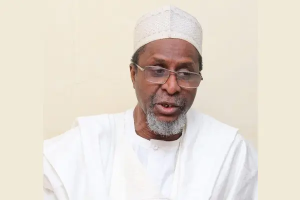The Federal Government has expressed determination to reduce poverty through the Agro-Climate Resilience in Semi-Arid Landscape (ACReSAL) project, by managing the ecosystem through a catchment plan.

Malam Balarabe Lawal, Minister of Environment, said this in Abuja at the contract signing ceremony for the delivery of 20 strategic catchment management plans for the ACReSAL project.
The minister reiterated that catchments are vital ecosystems that support livelihoods, provide high-quality water, and sustain biodiversity.
“This catchment plan will help reduce poverty, promote sustainable agriculture, protect the environment, supporting livelihoods for generations to come.
“The Ministry of Environment under my watch has promised Nigerians of improvement in environmental sustainability interventions and initiatives.
“The Strategic Catchment Management Plan (SCMP) is a vital component of the ACReSAL project, aimed at ensuring sustainable management and utilisation of our water resources,” he said.
Lawal said that the agreement signing ceremony for the Development of Strategic Catchment Management Plan (SCMP) for ACReSAL is a crucial step towards responsible management of Nigeria’s natural resources.
“The SCMP is designed to address these issues through efficient, effective, and sustainable management practice to ensure that land, water, and related resources are developed and managed in a coordinated manner without compromising the sustainability of vital ecosystems.
“Indeed, what we are witnessing today is one of the hallmarks of President Bola Tinubu’s administration’s love for the restoration of nature and its attendant protected ecosystems.
“By implementing the SCMP, the ministries of Environment, Agriculture and Water Resources, will not only ensure sustainable agro-climatic and land management but also improve the living standards of communities in northern Nigeria,” the minister said.
Chuka Offodile, consultant and Managing Director of Mecon Geology and Engineering Services Ltd., said the strategic catchment management plan study of the northern parts of Nigeria begins by scientific delineation of northern Nigeria into 20 mega-catchments.
“Then the scientific assemblage and analysis of data in that framework as a planning tool with its component natural and environmental resources in an integrated manner in line with the various interacting characteristics of each notable element,” Offodile said.
He said that the notable element should lead to the recommendation of knowledge-based infrastructure and investment implementation guided by a community-based sustainable, climate-resilient solution to environmental challenges in the northern parts of Nigeria.
Mr Abdulhamid Umar, National Coordinator for the ACReSAL project, said that the catchment plan would enhance livelihood for communities.
“The plan’s implementation will help us balance human needs with environmental protection, ensuring a resilient and thriving catchment area for future generations,” Umar said.
By Abigael Joshua
